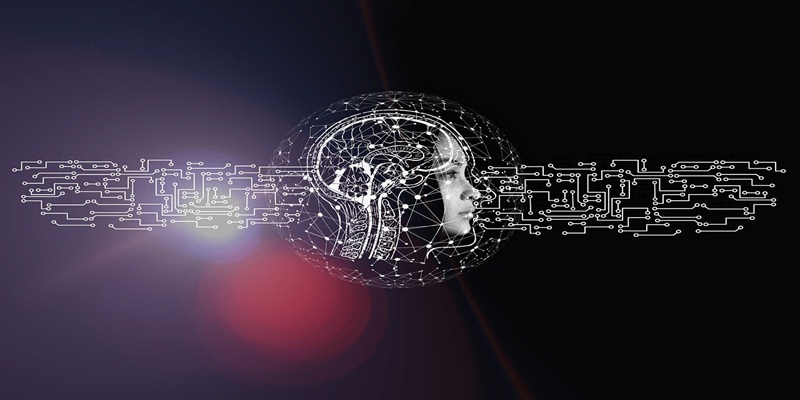Artificial Intelligence (AI) is no longer a futuristic concept. It is a powerful tool that is reshaping how industries operate across the globe. From healthcare and finance to transportation and education, AI is proving to be a game-changer. It enables machines to learn, adapt, and perform tasks that previously required human intelligence. As a result, businesses are becoming more efficient, accurate, and innovative.
Understanding the Core of Artificial Intelligence and Its Evolution Over Time
Artificial Intelligence refers to computer systems that can perform tasks mimicking human intelligence. These include reasoning, problem-solving, understanding language, and even visual perception. The concept has been around since the 1950s, but recent advancements in computing power, big data, and algorithms have accelerated its development.
Initially, AI was limited to basic automation. However, with the rise of machine learning and deep learning, it has grown far more sophisticated. Today, AI can analyze massive datasets, learn from them, and make intelligent decisions in real time.
The Influence of Artificial Intelligence on the Healthcare Industry Is Unprecedented
One of the most significant impacts of AI is seen in healthcare. AI-driven diagnostics, for instance, can detect diseases like cancer, diabetes, or neurological conditions at early stages. Tools like IBM Watson Health help doctors make better clinical decisions by analyzing medical literature and patient data quickly.
Furthermore, AI assists in drug discovery, which traditionally takes years. Algorithms can now identify potential compounds and simulate their effects, shortening the development cycle. Additionally, AI-powered robots are being used in surgeries for enhanced precision.
Telemedicine also benefits greatly from AI. Chatbots and virtual health assistants can handle routine inquiries, schedule appointments, and offer initial diagnosis based on symptoms. Consequently, healthcare becomes more accessible and efficient.
How Artificial Intelligence Is Reshaping the Finance Sector Globally
AI is also playing a critical role in the finance industry. It helps banks and financial institutions detect fraud, manage risks, and improve customer service. Algorithms monitor transactions in real time and identify suspicious patterns. This ensures better protection against cybercrime.
Moreover, robo-advisors are changing how people invest. These platforms use AI to provide personalized investment strategies, making wealth management more accessible to the average person.
Credit scoring is another area where AI is impactful. Instead of relying solely on traditional financial data, AI considers alternative data like payment history, online behavior, and even social media activity. This enables more accurate and inclusive credit evaluations.
Artificial Intelligence Is Creating a Revolution in the Manufacturing Industry
In manufacturing, AI improves production efficiency, reduces downtime, and enhances product quality. Smart factories use AI-driven robots for tasks such as assembly, quality control, and packaging. These machines operate with precision and consistency, minimizing human error.
Predictive maintenance is another major advantage. Sensors and AI systems analyze machine data to predict failures before they happen. This reduces unexpected breakdowns and saves costs. Furthermore, supply chain optimization benefits significantly from AI. By analyzing demand patterns, inventory levels, and market trends, AI helps companies make better procurement and distribution decisions.
The Retail Sector Is Leveraging Artificial Intelligence for a Personalized Customer Experience
Retail businesses are using AI to personalize customer experiences. Recommendation engines, similar to those used by Amazon and Netflix, analyze user behavior to suggest products tailored to individual preferences.
Additionally, AI helps in inventory management by predicting which products will be in demand and when. This allows stores to stock items more effectively and reduce waste.
Chatbots and virtual assistants are improving customer service by handling queries 24/7. They provide quick responses, resolve issues, and even assist with purchases. Visual recognition technologies powered by AI are being used in stores to enhance security, manage shelves, and understand customer movement. As a result, retail operations become smoother and more efficient.
The Role of Artificial Intelligence in the Education Sector Is Fast Expanding
Education is another field experiencing a transformation due to AI. Intelligent tutoring systems provide personalized learning paths for students, identifying strengths and areas for improvement. This promotes better understanding and retention of knowledge.
Moreover, AI tools assist teachers by automating administrative tasks such as grading and attendance. This allows educators to focus more on teaching and student interaction. Language translation and accessibility tools powered by AI break down language barriers. Students from different regions can access quality education regardless of the language spoken.
Additionally, predictive analytics help institutions identify students at risk of dropping out, allowing timely interventions. Hence, AI contributes to improved student outcomes and more efficient education systems.
Artificial Intelligence Is Enhancing Transportation Systems Worldwide
The transportation industry is undergoing rapid AI-driven innovation. Self-driving cars are perhaps the most well-known example. Using sensors, cameras, and AI, these vehicles can navigate roads, avoid obstacles, and make split-second decisions.
AI also improves traffic management in cities. Smart traffic signals adapt in real time based on vehicle flow, reducing congestion and emissions. In logistics, AI algorithms optimize delivery routes, ensuring faster and more fuel-efficient shipping. Companies like FedEx and DHL use AI to monitor deliveries and predict delays.
Additionally, predictive maintenance in aviation ensures aircraft components are serviced before issues arise, thus enhancing safety and reducing downtime.
Challenges and Ethical Considerations of Implementing Artificial Intelligence Across Industries
While AI offers numerous benefits, it also comes with challenges. One major concern is data privacy. AI systems rely on vast amounts of data, raising questions about how this data is collected, stored, and used.
Job displacement is another issue. Automation may replace certain jobs, particularly in manufacturing and administration. Although new roles will emerge, the transition can be difficult for affected workers. Bias in AI algorithms is also a significant concern. If the data used to train AI is biased, the outcomes will be biased too. This can lead to unfair decisions, particularly in sensitive areas like recruitment, lending, or law enforcement.
Therefore, ethical frameworks and regulatory oversight are essential to ensure AI is used responsibly. Companies and governments must collaborate to create transparent and accountable systems.
The Future Outlook: How Artificial Intelligence Will Continue to Drive Global Innovation
Looking ahead, the role of AI in global industries will only expand. As technology evolves, AI systems will become even more intelligent, intuitive, and integrated.
Emerging fields like quantum computing and neuromorphic engineering will take AI capabilities to new heights. We may see AI collaborating with humans in more profound ways, from creative arts to scientific research.
Furthermore, AI will be essential in tackling global challenges. From climate change prediction models to AI-driven food production systems, its potential is vast.
To harness this power effectively, continuous learning, ethical governance, and inclusive access are crucial. Ultimately, AI’s true potential lies in how it augments human capabilities and drives sustainable progress across the globe.
Conclusion
Artificial Intelligence is no longer an option—it is a necessity for industries aiming to thrive in today’s fast-paced, data-driven world. Its transformative impact spans healthcare, finance, manufacturing, retail, education, and transportation. Though challenges exist, the benefits outweigh the risks when implemented thoughtfully.
By embracing AI responsibly and investing in innovation, industries can unlock unparalleled efficiency, creativity, and growth. The journey has just begun, but the future of AI promises a smarter, more connected, and more resilient world for everyone



































